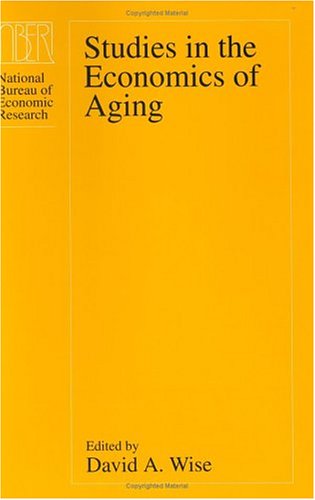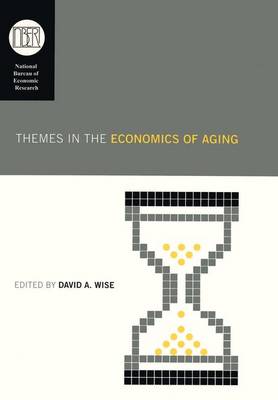National Bureau of Economic Research Project Report
3 total works
This is the fourth book in a series from the National Bureau of Economic Research that addresses economic issues in ageing and retirement. Building on the research in "The Economics of Aging" (1989), "Issues in the Economics of Aging" (1990) and "Topics in the Economics of Aging" (1992), this volume examines relations between elderly population growth and government spending. Chapters cover life expectancy and health, saving for retirement and the role of 401(k) plans, demographic transition and housing values, ageing in Germany and Taiwan, and the utilization of nursing homes and other long-term care.
In the past few years, the economic ramifications of aging have garnered close attention from a group of NBER researchers led by David A. Wise. In this volume, Wise and his collaborators continue to analyze a nexus of age-related issues.
This volume begins by looking at the implications of private and public personal retirement plans, focusing in particular on the impact of 401(k) programs on retirement strategies in light of potential social security reform and factors such as annuitization and on asset accumulation. Next, the often-observed relationship between health and wealth is dissected from two different perspectives and correlated with striking increases in health-care spending over the past two decades, despite the improved health of older populations. The volume concludes with an investigation of the retirement effects of various social security provisions in both U.S. and German systems.
This carefully developed collection expands the current investigative focus and broadens the dialogue on a rapidly growing area of social and economic concern.
This volume begins by looking at the implications of private and public personal retirement plans, focusing in particular on the impact of 401(k) programs on retirement strategies in light of potential social security reform and factors such as annuitization and on asset accumulation. Next, the often-observed relationship between health and wealth is dissected from two different perspectives and correlated with striking increases in health-care spending over the past two decades, despite the improved health of older populations. The volume concludes with an investigation of the retirement effects of various social security provisions in both U.S. and German systems.
This carefully developed collection expands the current investigative focus and broadens the dialogue on a rapidly growing area of social and economic concern.


